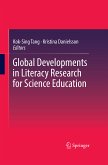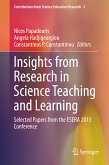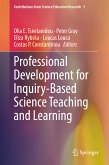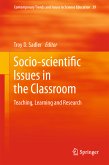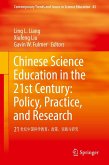This book specifies the foundation for Adapted Primary Literature (APL), a novel text genre that enables the learning and teaching of science using research articles that were adapted to the knowledge level of high-school students. More than 50 years ago, J.J. Schwab suggested that Primary Scientific Articles "afford the most authentic, unretouched specimens of enquiry that we can obtain" and raised for the first time the idea that such articles can be used for "enquiry into enquiry". This book, the first to be published on this topic, presents the realization of this vision and shows how the reading and writing of scientific articles can be used for inquiry learning and teaching. It provides the origins and theory of APL and examines the concept and its importance. It outlines a detailed description of creating and using APL, and provides examples for the use of the enactment of APL in classes, as well as descriptions of possible future prospects for the implementation of APL. Altogether, the book lays the foundations for the use of this authentic text genre for the learning and teaching of science in secondary schools.
Dieser Download kann aus rechtlichen Gründen nur mit Rechnungsadresse in A, B, BG, CY, CZ, D, DK, EW, E, FIN, F, GR, HR, H, IRL, I, LT, L, LR, M, NL, PL, P, R, S, SLO, SK ausgeliefert werden.



